Former Attorney General Justin Muturi has opened a new front in his criticism of President William Ruto, accusing him of masterminding a large-scale plan to misuse public funds.
Muturi claims that the head of state was behind a fraudulent arrangement involving a non-governmental organization that was tied to the government’s tree-planting project.
The former Attorney General says the deal was valued at about Ksh390 billion and was sold to the public as part of the government’s promise to plant 15 billion trees, but in reality, it was a cover-up for corruption.
Muturi explained that the idea was brought to him during his time in office, and it was presented as a proposal that needed his approval.
He alleges that Ruto’s close advisor, Aden Mohammed, approached him directly with details of a financial deal that was supposed to support the ambitious project. The plan was to sign a Memorandum of Understanding worth about $3 billion, allegedly secured to fund the tree planting exercise.
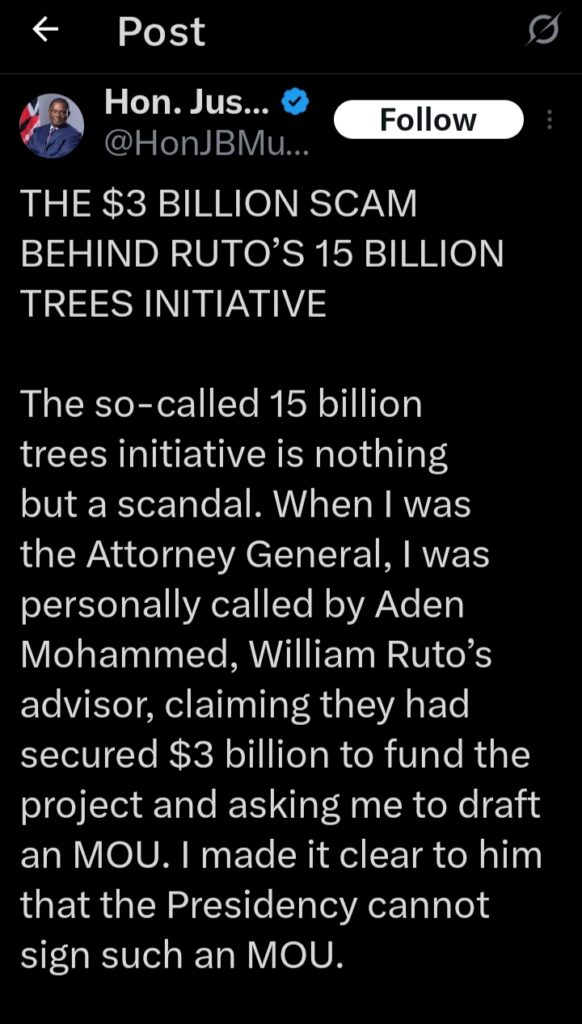
According to Muturi, from the very beginning the arrangement looked suspicious and raised legal and ethical concerns that could not be ignored.
He insists that he rejected the proposal because it did not meet constitutional requirements. In his position as Attorney General, Muturi argued that the presidency does not have the power to enter into such binding financial agreements with external groups. He maintained that government deals of this scale should go through the proper institutions and undergo scrutiny to ensure accountability and transparency.
To him, bypassing these checks was not only irregular but also a clear indication that the project was not what it appeared to be.
Muturi now says the tree-planting project was less about conservation and more about creating loopholes for money to be siphoned off.
This casts doubt on one of Ruto’s most promoted initiatives, which the government has presented as part of Kenya’s contribution to fighting climate change. The program had been marketed as a way to restore forests, fight desertification, and address the risks of drought, but the allegations now raise questions about whether the environment was ever the main concern.
Muturi portrays the administration as one that is willing to exploit public trust and hide behind noble causes to enrich a few. He insists that his refusal to sign the deal was about upholding the law and ensuring that public resources were not looted under the cover of development projects.
His comments also speak to a larger issue of governance, suggesting that state officials may be using NGOs and other entities as tools to channel money away from public use.

The accusations have put the government under fresh scrutiny, with many wondering whether there will be proper investigations to uncover the truth about the alleged $3 billion deal.
Muturi says his stance is not just about this one scandal but about protecting public institutions and reinforcing accountability at the highest levels. His remarks add to growing concerns about how resources are being managed, leaving many Kenyans questioning whether projects presented as solutions to national problems are genuine or simply avenues for corruption.







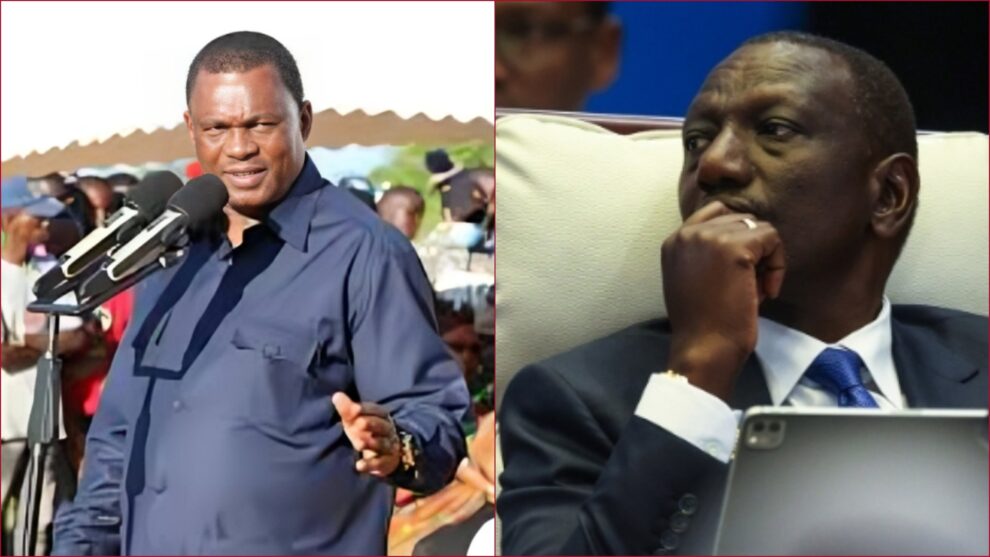

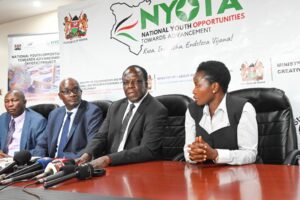

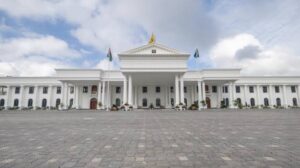



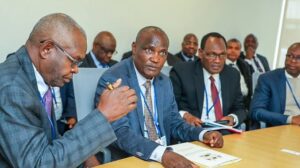





Add Comment